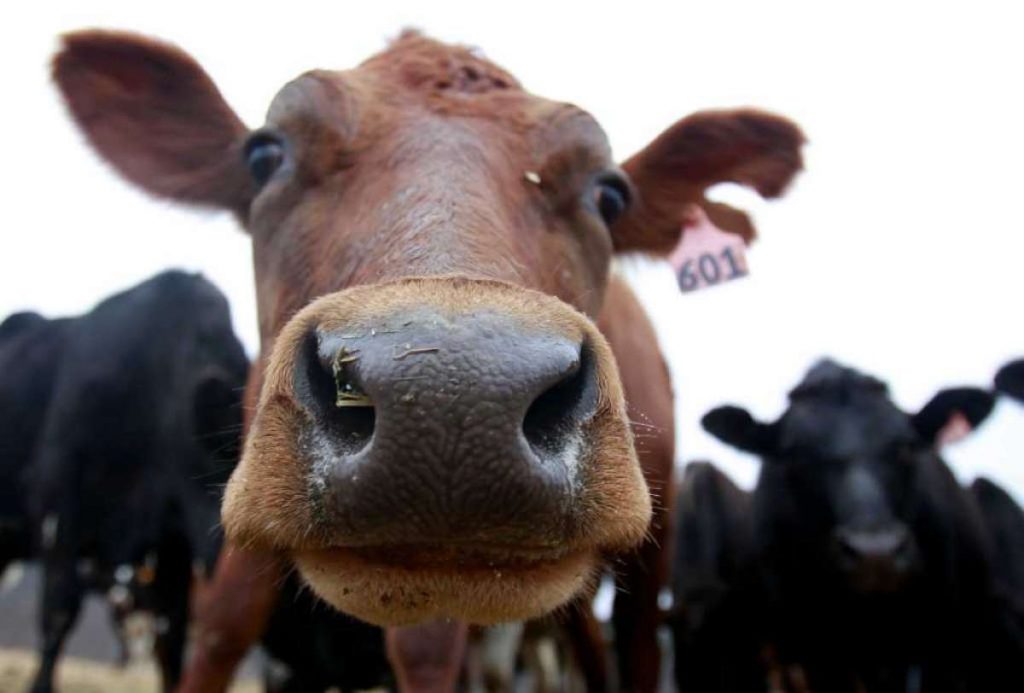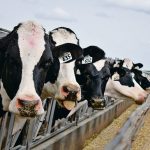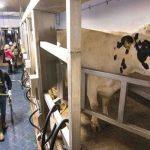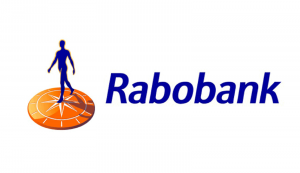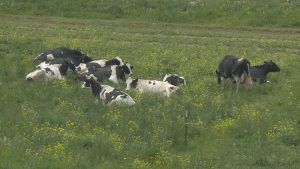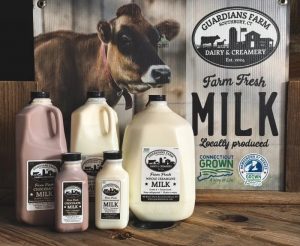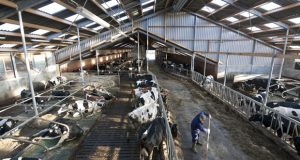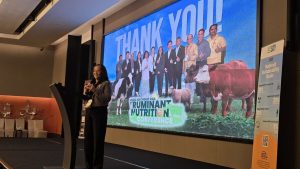
Stonyfield Organic is pledging to pickup a “meaningful number” of the 89 small organic dairy farms in the Northeast that Horizon Organic, through its corporation Danone, had announced in August would have their contracts terminated in a year.
The cancellations for the organic farms, more than half of them in upstate New York, has created a potential crisis that experts contends could need government intervention.
Stonyfield’s decision to help out at least some of the farms is the latest move in a series of responses to an outcry of concern and support from lawmakers, the federal and state departments of agriculture and regional players.
“We have to keep them alive. It’s too important,” Stonyfield Organic co-founder Gary Hirshberg told the Times Union.
It is the first time Stonyfield is picking up products from additional dairy farms, beyond the amount of dairy it needs to meet its current demand, according to the business. Horizon Organic, through its corporation Danone, previously said by giving the dairy farms a one-year extension, beyond its contractual obligation, it was helping the farms out.
Dairy farmers interviewed by the Times Union repeatedly declined to speak on the record for fear of retribution from Danone and other major dairy industry players. Farmers and industry experts have indicated there’s a lack of market for the milk with Danone’s departure from the North Country and the greater Capital Region. Stonyfield’s entry into the situation was unexpected.
“There’s no question we’re going to have to create demand for this milk,” Hirshberg said. “It’s not just simply about picking it up.”
Hirshberg, the dairy community and the U.S. Department of Agriculture have also been discussing whether the typical milk product could be transitioned to a product for yogurt or cheese markets, which in New York have been rising at similar rates to the decline in overall milk consumption.
The USDA convened a task force to address the issue raised by Danone’s departure from 89 farms, which it has attributed to a cost-saving measure for costs to ship milk.
Experts have pointed to an organic livestock rule about transitioning herds as a vital element, too. U.S. Senate Majority Leader Charles E. Schumer sent a letter to USDA calling for the closure of a “loophole” that is driving corporations to get their milk from the Midwest over the Northeast. Schumer also sent a letter to Danone this month demanding answers.
Under the rules, it takes three years to transition livestock to organic. It can be difficult to transition them back if they are switched to conventional dairy, experts said.
“If we lose them and we have growing demand (in organic dairy), we’re in the soup,” Hirshberg said. The organic milk industry is seeing gains, while conventional industry is seeing declines. “These are models. These are critical links to supply.”
The state Department of Agriculture “supports any businesses interested in assisting any of our dairy family farms, particularly those affected by the Danone situation,” spokeswoman Jola Szubielski said. “We continue to have daily conversations with our partners at the USDA and other states, as well as many processors, and the impacted farms, with a goal of strengthening the dairy industry in New York state.”
There are also discussions to create a pledge system from suppliers, like supermarkets, or consumers to commit to buying and selling milk that is farmed with certain standards — many of which overlap with the region’s climate goals, especially compared to more large-scale, conventional dairy.
“We’re going to need city stakeholder in that gigantic milk market to step up,” Hirshberg said about New York City milk consumers and suppliers.
While North Country and Capital Region lawmakers have been vocal about the issue that is plaguing upstate dairy, city lawmakers, often the most vocal about climate change, have been relatively silent.
“It’s a climate issue,” Hirshberg said. “If’ we’re going to keep Manhattan on the right side of sea level, organic is going to have to be a growing part of how we get our food.”
